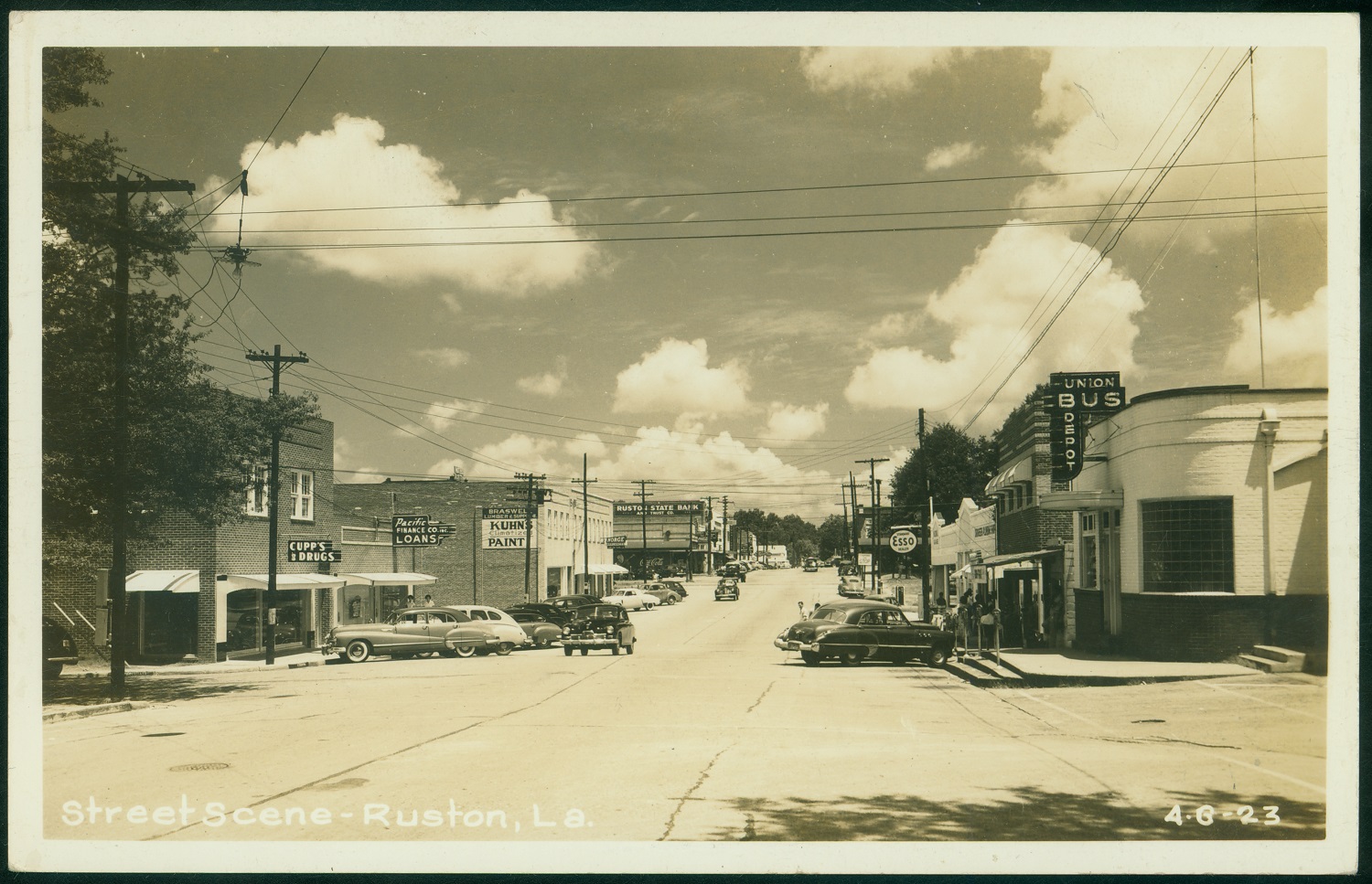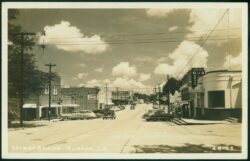Lincoln Parish Turns 150
A century and a half for the Reconstruction-era parish
Published: August 31, 2023
Last Updated: November 30, 2023

LSU Libraries Postcard Collections
A postcard shows a street scene in Ruston, the Lincoln Parish seat, in 1923.
Lincoln Parish became the ninth of eleven Louisiana parishes created during Reconstruction. The establishment of the new parishes, and the newly elected and appointed Republican officials in them, increased the Republican Party’s control in Louisiana; at the time, the party’s goals included securing civil rights for formerly enslaved people. In response, white Democrats, who’d ruled Louisiana until Union forces took control of New Orleans and Baton Rouge early in the Civil War, launched a power struggle. The resulting political turmoil in Louisiana’s northern parishes included disputed elections, assassinations, gun battles between the opposing parties, and occupation by federal troops.
In Lincoln Parish, white landowners signed a petition demanding the resignation of Sen. Greene and his sons, whom he’d appointed to important positions in the parish. In 1873 Greene’s request for federal protection was fulfilled with the arrival of the 7th Cavalry of the US Army in Vienna, Louisiana. Ultimately Greene’s time in office was brief. By 1877, after federal troops withdrew and Reconstruction ended, old-guard Southern Democrats had regained nearly every elected and appointed office in the state. Greene died in 1883, the same year that the Vicksburg, Shreveport, and Pacific Railway arrived in Lincoln Parish. The railroad spurred the establishment of the parish seat, Ruston, which soon became a community of businesses, churches, schools, and, in 1894, Louisiana Tech University. Grambling State University, the historic Black university in Lincoln Parish, was founded in the city of Grambling six years later, in 1901.
Although forestry is Lincoln Parish’s major industry, the area once was known as the Peach Capital. Despite the freezes and crop disease that forced the decline of peach farming, Ruston still stages the annual Louisiana Peach Festival. In 2022 the late spring event drew 22,000 attendees to a city in a parish of just 47,000 residents. Other attractions include Ruston’s Lincoln Parish Museum and North Louisiana Military Museum, the Ruston Farmers Market, and Grambling’s Eddie G. Robinson Museum.
The parish’s fall events include the 34th Annual Louisiana Chicken Festival and parade in Dubach, September 29–30, and Ruston’s Wine Walk on October 27, a spotlight on the downtown arts and cultural district. Other October events in Ruston include ARToberfest, a fundraiser for the North Central Louisiana Arts Council. On November 16 Ruston will stage its Holiday Open House, part of North Louisiana’s seven-city Holiday Trail of Lights. December brings Sip and Stroll, featuring holiday shopping and community caroling at Ruston’s Railroad Park; the annual Christmas parade; and Lincoln Light Up the Pines in Lincoln Parish Park.
John Wirt has written thousands of music and film stories and reviews. He’s also the author of the New Orleans music biography Huey “Piano” Smith and the Rocking Pneumonia Blues, a Japanese translation of which was published in 2022.
